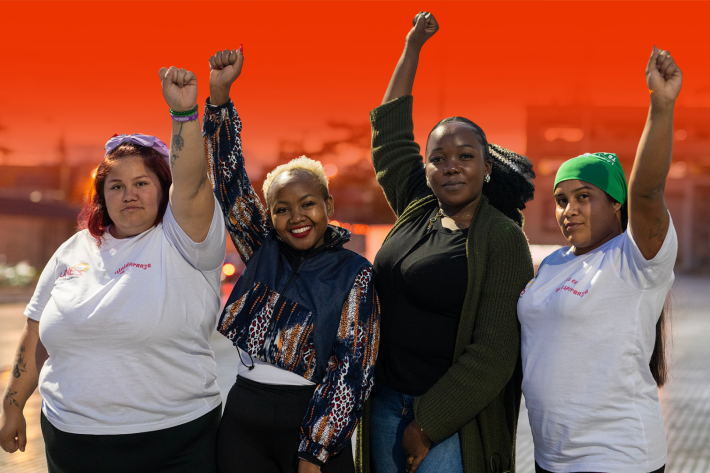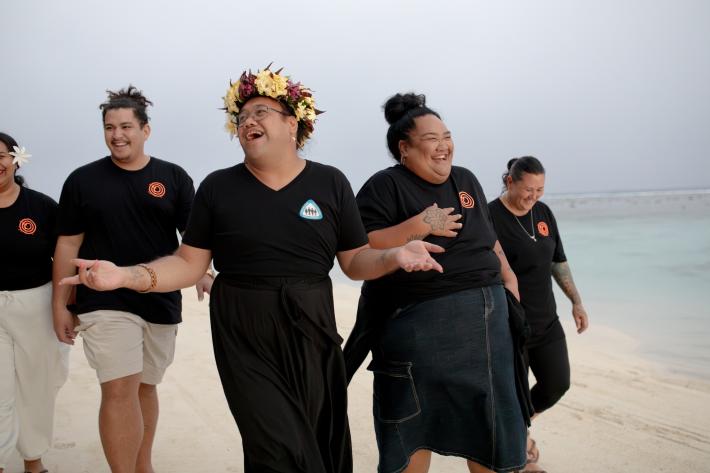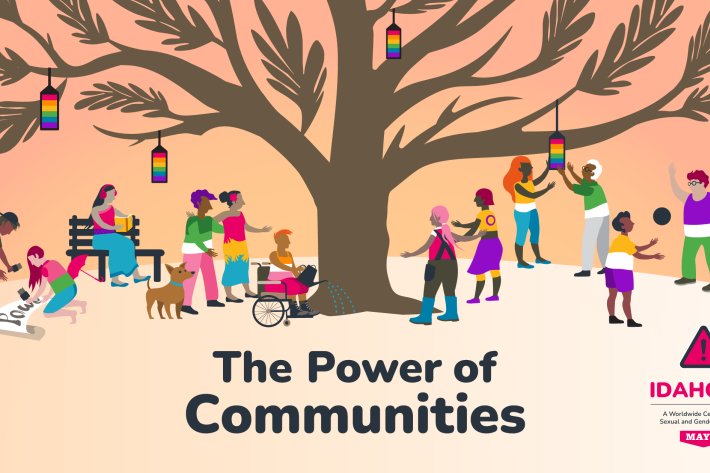
Spotlight
A selection of news from across the Federation
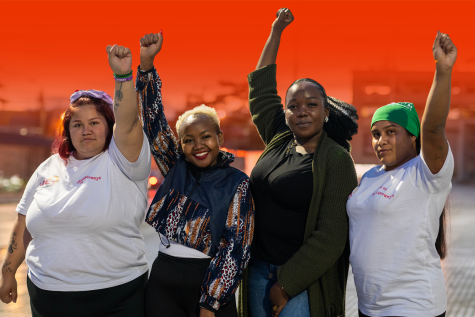
We Made It a Charter: IPPF’s Declaration of Values
Proud, bold, and united: we are values-led.
Filter our news by:


| 01 December 2019
IPPF is changing. By choice. For choice.
IPPF’s Member Associations overwhelmingly gave their support for radical reform of the Federation, at a historic General Assembly in New Delhi this weekend (30th November – 1st December). Over two days, Member Associations discussed and debated the recommendations presented by two Independent Commissions. Member Associations reached unanimous consensus on the recommendations to reform IPPF’s governance structure and resource allocation system. On Sunday these were endorsed by IPPF’s Governing Council. This summary outlines the recommendations which were approved at the General Assembly and endorsed by the Governing Council. Rana Abu Ghazaleh, IPPF President said “This is a truly historic moment for IPPF. It will pave the way for us to move forward and build a Federation that is more agile, transparent and most importantly, one that will better serve the women and girls we are here for.” Alvaro Bermejo, Director-General said “The collective energy and passion from our Member Associations to drive the reforms forward has been tremendous. Over the last few days we have heard many passionate voices from our Federation. Together, our MAs have forged a path forward, finding compromise and building consensus. There is no doubt. IPPF is changing. By choice. For choice.” Download the General Assembly outcomes in Arabic Download the General Assembly outcomes in French Download the General Assembly outcomes in Spanish Watch: IPPF is changing. For Choice. By Choice. (French subtitles) Watch: IPPF is changing. For Choice. By Choice. (Arabic subtitles) Watch: IPPF is changing. For Choice. By Choice. (Spanish subtitles) Watch: IPPF is changing. For Choice. By Choice. (English subtitles)
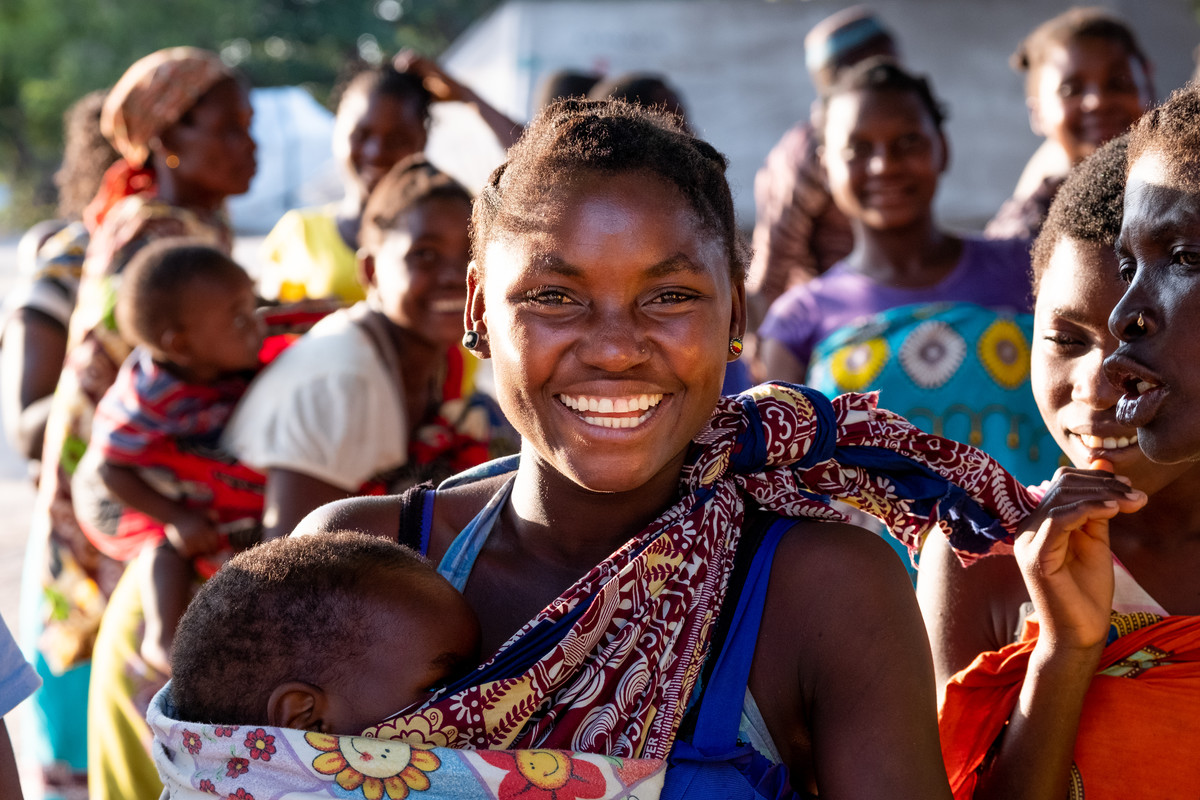
| 21 November 2019
IPPF welcomes the adoption of UN General Assembly Third Committee resolutions on human rights, including the rights of women, girls, young people and adolescents
This Committee is a critical intergovernmental space, with the full membership of the United Nations (UN), which agrees on normative standards and frameworks on human rights, gender and sexual and reproductive health and rights. IPPF closely followed the negotiations on the situation of women and girls in rural areas, policies and programmes affecting youth, the human rights to safe drinking water and sanitation, the girl child, the implementation of the Fourth World Conference on Women and of the 23rd special session of the General Assembly. All resolutions were adopted by consensus, reaffirming strong cross regional support for critical issues related to women and girls, young people’s rights, gender equality, sexual and reproductive health and reproductive rights. Significant advances were achieved in the resolution on improving the situation of rural women and girls regarding multiple and intersecting forms of discrimination that women and girls face, including policies that exclude pregnant and married girls from schools and subsequently limit their future economic opportunities. It also calls on Governments to promote sustainable gender-responsive infrastructure, scaling up investment in health facilities and ensuring water and sanitation, including through provisions for menstrual hygiene management. The resolution on policies and programmes affecting youth reiterates Governments' commitments to fulfill the human rights and the well-being of young people, including adolescents and young women, as well as the role that universal health coverage plays in ensuring the good health of young people. It also recognizes, for the first time in an intergovernmental space, that young women between the ages of 15 and 24 are most vulnerable to HIV. On the human rights to safe drinking water and sanitation resolution, important commitments were made to address menstruation stigma and stereotypes as well as to ensure water, sanitation and menstrual hygiene management, including in humanitarian crises, for all women and girls. IPPF furthermore welcomes the adoption of the Human Rights Council Report reiterating the support of the General Assembly to the extension of the mandate of the Independent Expert on protection against violence and discrimination based on sexual orientation and gender identity for three years. Despite the attempts to disrupt the multilateral process and the introduction of hostile amendments to weaken and undermine previously agreed commitments, and thereby the values and principles of multilateralism, member states made new commitments to advance on key issues, including the rights of all women and girls. This represents a resounding victory for gender equality, the human rights of women, girls, young people and adolescents and for sexual and reproductive health and rights.

| 24 September 2019
IPPF responds to latest UK aid pledge made at UNGA
IPPF responds to the new UK aid pledge made at the United Nations General Assembly, to expand access for over 20 million women and girls. Speaking at the high-level event at the United Nations General Assembly, International Development Secretary Alok Sharma said the world cannot achieve universal health coverage without prioritizing universal sexual and reproductive health and rights (SRHR) access for women and girls. IPPF Director General, Dr Alvaro Bermejo said: “We welcome the UK Government’s leadership at this critical time in significantly stepping up their efforts to expanding access to quality contraceptive supplies and sexual and reproductive healthcare services. This will be transformative for millions of women and girls in some of the world’s poorest and most marginalized communities, especially in humanitarian settings. The International Planned Parenthood Federation (IPPF) is working in close partnership with the UK government through the Women’s Integrated Health programme (WISH) to scale up efforts at country level and expand reach to millions of new users of sexual and reproductive healthcare. A second IPPF programme supported by DFID looks at the needs of people in complex and challenging settings (ACCESS) to design and test innovative sexual and reproductive health and rights solutions. This is the commitment and leadership that puts women at the heart of healthcare. DFID’s continued strong commitment to the UNFPA Supplies programme affirms its role as a global champion of women’s and girls’ sexual and reproductive health. The UNFPA Supplies programme is an essential mechanism for supporting women’s and girls’ access to sexual and reproductive services and a close partner of IPPF. We look forward to continuing to work with DFID and UNFPA Supplies to make sure every woman and girl can access the healthcare she needs and deserves.”
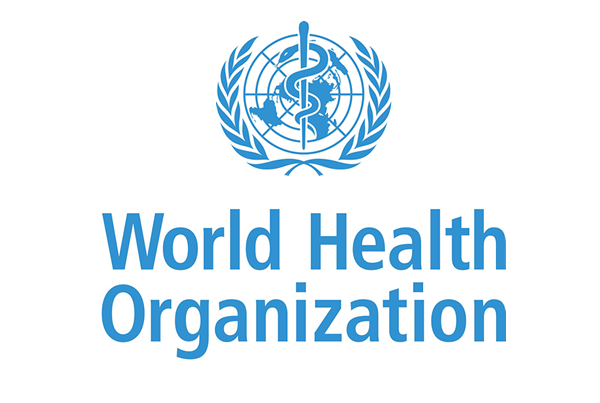
| 30 August 2019
IPPF statement on revised WHO contraception guidance
Since the early 1990s, evidence had been inconclusive as to whether using hormonal contraception increased women’s risk of acquiring HIV. This was a critical issue, particularly for areas with high HIV prevalence, such as sub-Saharan Africa. To address this, the ECHO trial, a randomised clinical trial, was designed to compare three highly effective, reversible methods of contraception – a progestogen-only intramuscular injectable, depot medroxyprogesterone acetate (DMPA-IM); a progestogen implant (Jadelle®); and the non-hormonal copper intrauterine device (IUD). The results – that the ECHO trial did not find a statistically significant difference in HIV risk between the contraceptive methods it evaluated – were published in The Lancet on 13 June 2019. IPPF International Medical Advisory Panel (IMAP) issued a statement and a technical brief was developed to discuss the results and highlight key recommendations to local IPPF affiliates and other organizations in the field. Following on the release of the results of the ECHO trial, the World Health Organization (WHO) released an updated guidance statement on contraceptive eligibility for women at high risk of HIV on 29 August 2019. WHO now recommends that women at high risk of HIV can use all methods of contraception without restriction (Medical Eligibility Criteria (MEC) Category 1), including progestogen-only contraceptives such as DMPA-IM and DMPA-SC. This is a change from WHO’s March 2017 guidance which classified progestogen-only injectables as MEC Category 2 for women at high risk of HIV acquisition, which states “the benefits of a method outweigh the theoretical or proven risks.” The change is in response to the new epidemiological and biological evidence, as well as related information. The ECHO trial results and WHO’s updated guidance underscores the continued need to expand and ensure equitable access to a broad mix of contraceptive methods. WHO also emphasizes the importance of HIV/STIs testing and prevention services, including the integration of family planning and HIV/STIs services as appropriate, along with other SRH services. IPPF welcomes the efforts of WHO in providing evidence-based guidance and recommendations to organizations providing sexual and reproductive health services. IPPF will continue supporting the right of women and girls to have access to broader contraceptive options, ensuring a woman’s risk of HIV does not restrict her contraceptive choice. IPPF reaffirms the importance of providing rights-based information and services to support all people in realizing their reproductive choices as part of an integrated package of interventions including HIV/STIs prevention. The results from the recent ECHO trial remind us of the risks of vertical programmes and the need to accelerate efforts in HIV/STIs prevention and treatment as an integral part of SRH services.

| 12 July 2019
Sky News drops term “heartbeat bill” after healthcare coalition call
Sky News says it will stop using the term “heartbeat bill” to describe attempts in the US to introduce six-week abortion bans, after conceding the phrase is biased. A coalition of five leading reproductive healthcare organizations – the Federation of Gynecologists and Obstetricians (FIGO), International Planned Parenthood Federation (IPPF), Marie Stopes International (MSI), Planned Parenthood Federation of America (PPFA) and the Royal College of Obstericians and Gynaecologists (RCOG) wrote to Sky News about its use of the phrase. It pointed out that both RCOG and the American College of Obstericians and Gynecologists had stated clearly the phrase was medically inaccurate, and that the language was partial, coined by opponents of access to safe and legal abortion to frame the debate on their own terms. The alliance also pointed out that other media, such as The Guardian, had already announced it would drop the description. Sky News consulted its US team before telling the coalition that it would stop using the term. In his reply Sky’s Head of Home News, Peter Lowe, said: “We agree that the term “heartbeat bill” is not an impartial expression, but designed to support a particular point of view…our plan would be to adopt “Six week abortion ban”, or similar phrase.” IPPF Director-General Dr Alvaro Bermejo said: “We’re very grateful that a news organization with the reach and reputation of Sky News has thought so hard about its use of language and decided to stop using this medically inaccurate and biased phrase. Words matter, and all journalists need to pause, think and avoid simply parroting terms designed to skew opinion, especially when they are – as in this case – medically wrong as well as partial. It’s up to major news providers, who make much of the trust placed in them by audiences and their commitment to impartiality, to see through these attempts by opponents of access to safe and legal abortion to play them.” Sky News’ move follows a decision by BBC News not to rule out using the phrase, because it was already “in common usage.” Dr Bermejo said: “Sky News’ decision shows that news does not have to simply follow where it is led. We would ask BBC News to think again about its reluctance to rule out using partial language.” The group also contacted ITV News and received an assurance from Rachel Corp, its Acting Editor, that if it used “heartbeat bill” at all, it would make clear it was a biased phrase. She said: “We would always aim to make clear the phrase is being used by those campaigning against abortion and would attribute it to them.” Channel 4 News, which does not appear to have used the term, said it had told all its journalists to be aware of the issues it raised. Ben de Pear, Editor of Channel 4 News said: “I note the point you have raised over the use of this term…We have notified editorial staff of the nature of this debate and the particular issues raised by this legislation.” The coalition thanked Sky News, ITV News and Channel 4 News for thinking carefully about the impact of their language. It also confirmed it would contact the BBC’s Director General, Lord Hall, to ask for a meeting about the issue, as BBC News appeared to be out of step with other broadcasters. NOTES: Sky News is available in 127 countries and 102 million homes, according to Sky News International. It is the current RTS News Channel of the Year.
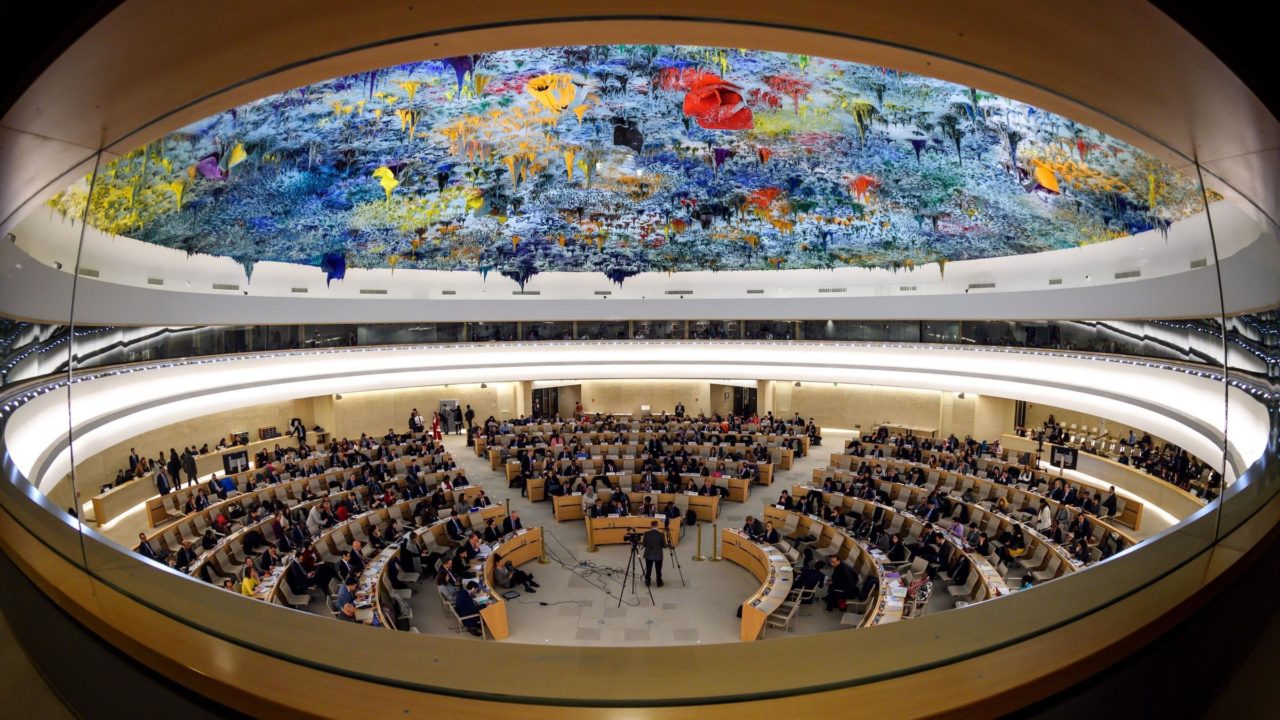
| 12 July 2019
IPPF welcomes renewal of sexual orientation and gender identity mandate
IPPF strongly welcomes the renewal of the Mandate of the Independent Expert on protection against violence and discrimination based on sexual orientation and gender identity at the 41st session of the Human Rights Council that ends today in Geneva. The renewal of the mandate, first adopted in 2016, represents an unequivocal commitment by member states to the rights of LGBTQI+ people. This mandate has been critical in highlighting the human rights violations people around the world face because of discrimination and violence due to their real or perceived sexual orientation and gender identity. IPPF is very pleased with the adoption of this resolution proposed by a group of Latin American countries gathering the support of Governments from all regions of the world. As the reports of the Independent Expert have demonstrated over the years, discrimination and violence affect all aspects of people’s lives, including the very right to life itself, privacy and to be free from torture, cruel, inhuman and degrading treatment, as well as the ability to exercise the human rights to health, education, employment, housing and access to justice. IPPF supports all people’s right to live free from violence and discrimination on any grounds, including real or perceived sexual orientation and gender identity, and is committed to supporting the work of the Independent Expert to fully execute the mandate over the coming years. IPPF was actively involved in advocating for the renewal of this important mandate, working closely with a large coalition of civil society organizations and activists prior to and throughout the Human Rights Council session.
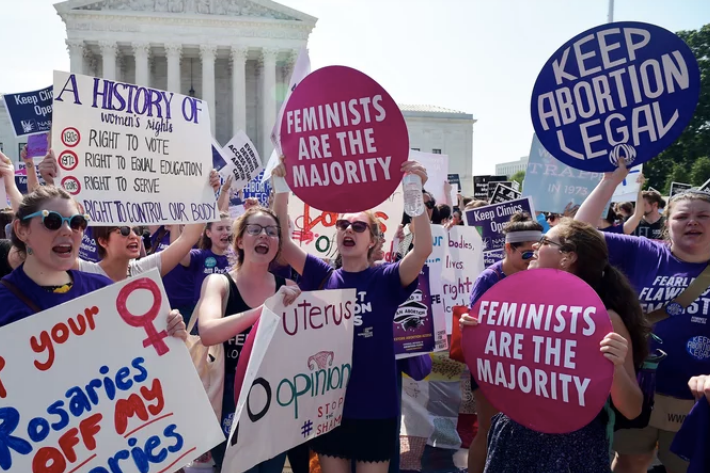
| 26 June 2019
BBC refuses to stop using medically inaccurate and biased language on abortion
The BBC has said it won’t stop labelling attempts to ban abortion after six weeks as “heartbeat bills” – despite conceding the phrase is biased and medically inaccurate. A coalition of four leading reproductive healthcare organisations – the Federation of Gynecologists and Obstetricians (FIGO), International Planned Parenthood Federation (IPPF), Marie Stopes International (MSI) and Planned Parenthood Federation of America (PPFA) wrote to the BBC, demanding it stop using the phrase in its coverage of attempts in some US states to introduce six week abortion bans. In its letter, the coalition pointed out: This description is biased, coined by opponents of safe and legal abortion in an attempt to frame the debate in their own emotional and empathetic terms. The American College of Obstetricians and Gynecologists (ACOG) has stated clearly that the phrase is medically inaccurate. Other news organisations, such as The Guardian, have already announced they would stop using the phrase and replace it with the factual “six-week abortion ban” Adding the words “so-called” or placing the phrase in parenthesises does not address the bias. In her reply, Fran Unsworth, BBC Director of News and Current Affairs said: “I quite understand the point you make about the use of the phrase “heartbeat bill” and we would not aim to adopt it as our own description of the legislation.” But she went on to say the term was “now in common usage” and the BBC would not stop using it. Dr Alvaro Bermejo, Director General, International Planned Parenthood Federation, said: “The BBC can’t concede “heartbeat bill” is a biased and medically inaccurate description and then say it’s going to use it anyway. Saying it is “in common usage” is no excuse, especially when the BBC – which boasted only last week that it has a global weekly audience of 426 million people – shares the blame for spreading it. Language around legal abortion has been weaponised by those who want to deny women access to it and journalists – especially those who work for a news organisation which claims to be impartial and trusted – must wake-up and see they are being played. This phrase was chosen very carefully by people who want to end access to legal abortion and who are exploiting the mainstream media to insert biased language into the common vernacular. It’s designed to hide the devastating impact on women of their plans and skew coverage. The right thing to do is to stop using it. We call on the BBC to think again.” Simon Cooke, Chief Executive Officer, Marie Stopes International, commented: “We are frustrated and disappointed by the BBC’s decision to continue to amplify a phrase which is not only medically inaccurate and overtly emotive, but which can put women’s health and lives at very real risk by increasing stigma. To fall back on ‘common usage’ as a defence legitimises and normalises anti-abortion rhetoric and further extends the chilling effect of restrictive anti-choice policies and views, especially when used by a globally respected and trusted media organisation such as the BBC. It’s sad to see antiabortionists so easily able to manipulate the mainstream media for their own ends.” Dr Leana Wen, President and CEO, Planned Parenthood Federation of America said: “As a physician, I know just how critical it is for people to have the most accurate information about their health care. At this moment when our rights and freedoms are under unprecedented assault, now more than ever, we must stand up to dangerous misinformation. As scientists and public health leaders, we have a responsibility to stand up and reject misleading rhetoric and we call on the BBC to adopt medically accurate and unbiased language.” For more information contact Tia Jeewa at IPPF on 0207 939 8227, or email tjeewa@ippf.org

| 13 June 2019
ECHO Trial results show urgent need for great efforts in HIV prevention
IPPF’s Director-General, Dr Alvaro Bermejo has welcomed the publication today (Thursday 13 June) of the results of the Evidence for Contraceptive Options and HIV Outcomes (ECHO) trial – but warned they show how much more must be done urgently to combat HIV acquisition and offer real contraceptive choice. The ECHO clinical trial compared three common methods of contraception – DMPA-IM, Jadelle Implant and Copper IUD - and whether any of them increased the risk of acquiring HIV among women and girls at high risk. It was conducted at 12 sites in four countries, across South Africa, Eswatini (Swaziland), Zambia and Kenya. More than 7,800 women took part in the study, for up to 18 months. The trial did not find a statistically significant difference in HIV risk between the contraceptive methods it evaluated. But during the trial 397 of the women who took part acquired HIV. Dr Alvaro Bermejo said: “This has been an extremely important trial and we are pleased to see the results published. We do need to analyse them in greater deal, but it is already clear that the high rates of HIV and STI infections among those women who took part - despite individualised prevention efforts - represent an urgent cry for the integration of sexual and reproductive healthcare and HIV prevention. The results do not point to DMPA causing the increase in the risk of HIV infection some had feared, but the study has drawn attention to the many women – and countries – who have, in reality, a very limited choice of contraceptive methods available and the problems that causes. We have to ensure that a range of contraceptive options and the best counselling is available to women and girls who seek to prevent pregnancy and to protect them from HIV infection. That requires more investment , more coordination and prioritisation of sexual and reproductive healthcare.”
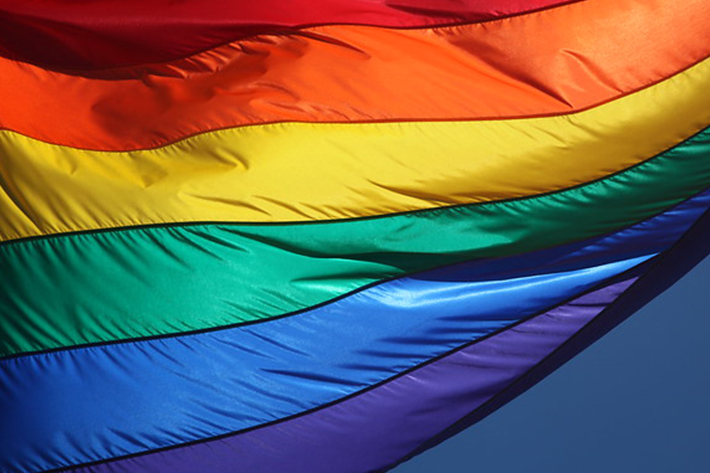
| 11 June 2019
Botswana High Court rules ban on sexual relationships between same sex persons is unconstitutional
IPPF has welcomed the news that Botswana’s High Court has overturned a ban on same sex relationships. The court ruled the law used to criminalise same sex relationships unconstitutional. “Botswana has done it, yes the good work starts here and now,” said Una Ngwenya, Executive Director of the Botswana Family Welfare Association, IPPF’s member organisation in Botswana. Monica Tabengwa, one of the first leaders of LeGaBiBo (Lesbians, Gays and Bisexuals of Botswana), the main SOGIE organisation in Botswana, said: “All our work has been proven worth it through this decision.” Botswana’s Government can challenge the decision in the Court of Appeal. Monica added an appeal was unlikely, and would fail in any case. She said: “If the Government does decides to appeal, it may not be a bad thing, as a defeated challenge would strengthen today’s decision even further.” The Botswana law is more or less a copy of the law in many other former British colonies introduced during colonial rule. The judgment equals the India Supreme Court judgment last year, which stated that colonial era laws did not ensure human rights as expected under post-colonial constitutions. IPPF’s Director General Alvaro Bermajo said: “We recognise today’s ruling as another milestone in the fight to reduce discrimination in Botswana and hope it will serve as an encouragement to those fighting similar laws in other places. We salute Botswana on this decision and hope it will lead the way for others.” Image by torbakhopper
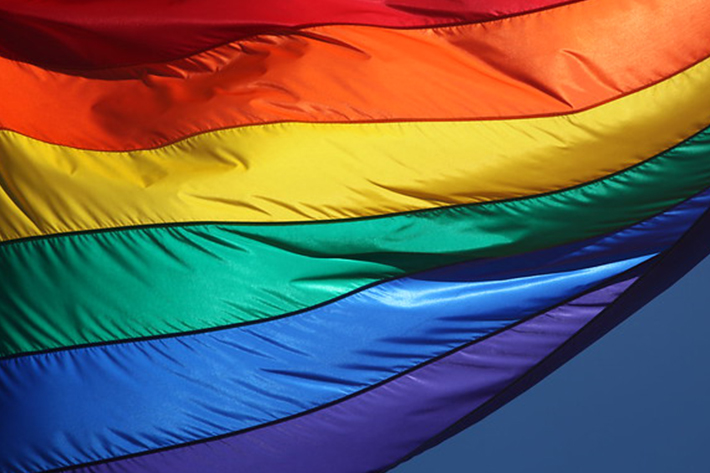
| 17 April 2019
The introduction of Brunei’s new law – stoning as a death sentence – is a gross violation of international human rights
The International Planned Parenthood Federation along with its 134 Member Associations all over the globe, call on the government of Brunei to immediately stop the implementation of the Islamic Penal Code which severely punishes consensual same-sex acts, pregnancy out of wedlock, access to abortion and adultery. IPPF believes that such Penal Code is in direct violation of fundamental freedom and international human rights instruments such as the Universal Declaration of Human Rights (UDHR), Convention on the Elimination of All Forms of Discrimination Against Women (CEDAW) and Convention on the Rights of the Child (CRC). IPPF, as a human rights defender, strongly oppose any violation of fundamental human rights. As rightly said by the UN High Commissioner for Human Rights Michelle Bachelet, the new penal code would “mark a serious setback for human rights protections for the people of Brunei if implemented”. Further, such laws disproportionately discriminate against the most marginalized in our society, the women, girls and people of diverse sexual orientation, gender identity and expression, increasing the risk of further inequality, stigma and violence towards these groups. We urge the government of Brunei to protect the sexual and reproductive health and rights of all women and girls, and LGBTI communities - to be equal in rights and before the law – ensuring the rights to privacy, freedom of expression and free from violence and harassment are upheld. IPPF and its Member Associations will continue to fight for change to ensure all people can live free from sexual and reproductive coercion, and all forms of gender-based violence. IPPF through its member associations shall remain vigilant to oppose such harmful and regressive laws all over the world. International Planned Parenthood Federation (IPPF) IPPF is a global service provider and a leading advocate of sexual and reproductive health and rights for all. We are a worldwide movement of national organizations working with and for communities and individuals. Photo by torbakhopper








